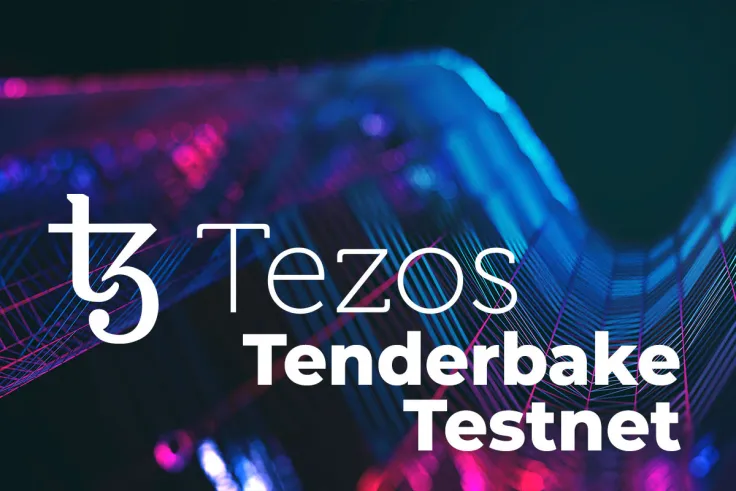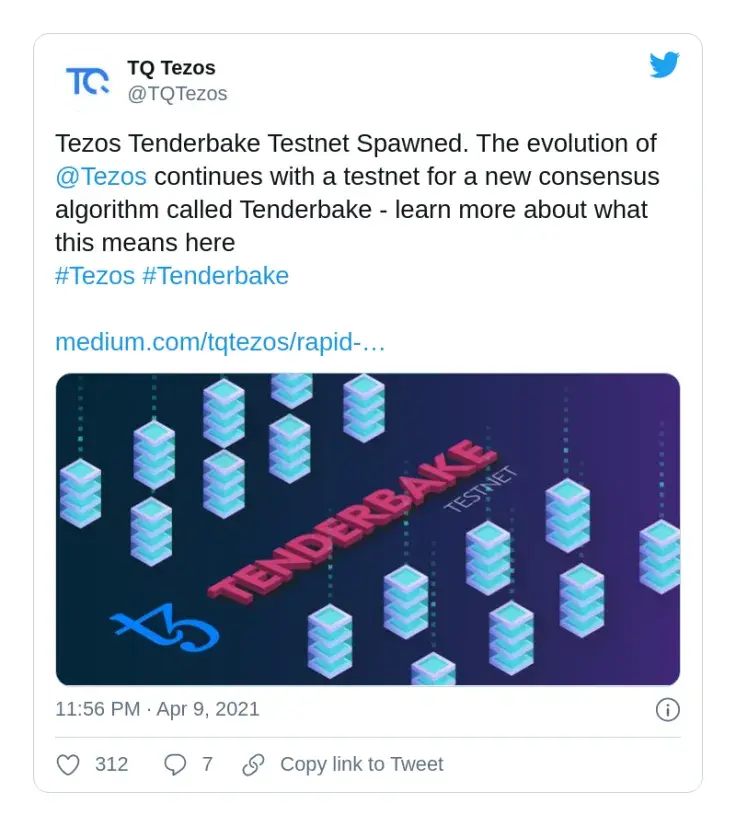
Tezos (XTZ) is a one-of-a-kind self-amending protocol for smart contracts. Its mainnet is periodically updated once in three months. Meanwhile, experiments with the crucial consensus change are now set in its testnet.
New testnet, new consensus
According to the official explanatory post by Tezos (XTZ) developers, the next-gen test network has been activated with a brand new type of consensus.

Tenderbake consensus is being promoted as a "fully-featured economic protocol." For the first time, it was introduced in 2020 in an academic paper, "Tenderbake—A Solution to Dynamic Repeated Consensus for Blockchains."
Tezos (XTZ) developers invited all blockchain-focused engineers to experiment with potential implementation issues and performance errors that might occur during transaction processing on the new Tezos (XTZ) mechanism.
Also, Tezos (XTZ) activated a block explorer for the newly launched testnet. Both the testnet and the explorer are delivered in collaboration with Baking Bad engineers.
Deterministic finality, advanced speed: What's new in Tenderbake
Core improvements introduced by this update affect system performance. Namely, Tenderbake handles a larger amount of validators than existing BFT-based systems.
With Tenderbake, deterministic finality is achieved: a new block is appended to the main chain only after the nodes confirm the next two blocks. Thus, the network becomes resistant to unintended chain splits: they will be mitigated in two blocks.
As a result, Tenderbake boasts a much shorter block finality time and confirms new blocks much faster than the existing Emmy+ algorithm. In theory, Tendermake can achieve a block time of one second or less.
 Gamza Khanzadaev
Gamza Khanzadaev Arman Shirinyan
Arman Shirinyan Dan Burgin
Dan Burgin Alex Dovbnya
Alex Dovbnya